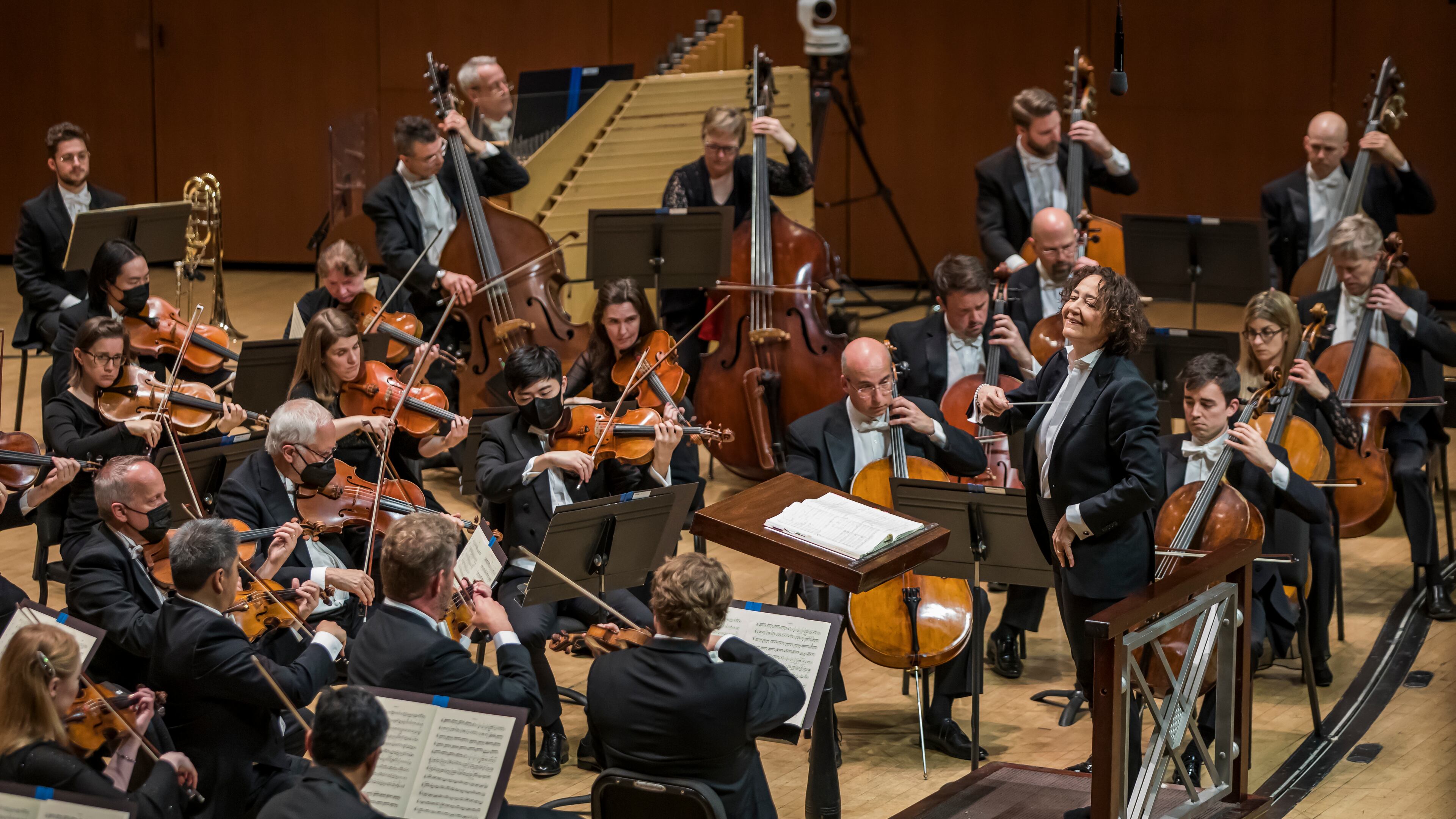Stutzmann stuns in debut leading ASO Chorus

When the Atlanta Symphony Orchestra returned to performing before a live audience in mid-September for the first time since early March 2020, I had difficulty parsing my feelings. Was what I heard that night truly extraordinary, or was I reacting to not having seen live music for months on end?
Thursday night at Symphony Hall, I knew right away. It’s hard to remove emotion from seeing and hearing a large, unmasked chorus for the first time in two years. It’s a piece the chorus knows well, last performing the work in 2018 with guest conductor Roberto Abbado. The most recent recording, led by Donald Runnicles, came out in 2005. Not to discount the ensemble’s gorgeous previous interpretations, but I have never heard the ASO Chorus like this. Those readings were wholly different — more introspective and somehow less grounded — than Stutzmann’s “Requiem,” which was like hearing the Mozart piece anew.
Thursday’s “Requiem,” additionally livestreamed through the ASO’s social channels and projected to an outside audience in Sifly Piazza, crackled with energy. Tempos in this version, completed soon after Mozart’s death by Franz Xaver Sussmayer, were faster than in other ASO interpretations (Runnicles’ recording is the 1993 Robert Levin version), but not rushed. Attacks were more pointed, giving an otherworldly drive to the music. The music vibrated in a way that only comes from strict precision, along with exacting cutoffs that were so crisp they were startling.
A group of wonderful guest soloists joined the chorus. Soprano Martina Jankova, mezzo-soprano Sara Mingardo — who has a thrillingly vast resonance to her voice — the phenomenal tenor Kenneth Tarver and bass Burak Bilgili blended well together as a quartet and in duets, sounding brilliant in solo passages.
The orchestra met this fresh, vibrant pace with vigor. Take, for example, the trombone section. “Tuba mirum” opens with a lyrical but perilous solo trombone passage that sings out above the soloist. Live performances of the Mozart often suffer from unstable playing. (It’s hard not to anticipate a bit of cracking in that section.) Thursday, Jeremy Buckler’s exquisite trombone shone with the radiance of the human voice.
Before the Mozart began, Stutzmann dedicated the performance to Ukraine, saying from the stage that “it seems timely to be performing a requiem now both for those we have lost during the pandemic and for those who are losing their lives in Ukraine.” Then the first full ensemble chord of the Ukrainian national anthem, held aloft by 150-odd voices, resounded in a thrilling forte for a supremely emotional moment.
The ASO opened the concert with “Death and Transfiguration,” Richard Strauss’ stirring tone poem about the great beyond, last heard in Symphony Hall nearly a decade ago. With broad, sweeping gestures, Stutzmann allowed the orchestra to ring out, fully embrace the melancholy at the root of the piece. First introduced by a solitary flute, the tentatively singing theme was passed around the orchestra, moving organically from section to section as the orchestra played with precision and passion.
The Strauss work changes direction often, sometimes in very quick succession. Toward the end of the 25-minute composition, Stutzmann bent down, looking pointedly at the bass section as she fluttered her fingers in rapid succession. The basses responded with a soft but focused tremolo. Seconds later, the low strings broke free with a feverish intensity at her direction, devilishly delivering a sinister theme.
It’s apparent the conductor, who has a storied career as a sublime contralto, worked hard with the chorus. She had a beautiful foundation on which to build, as director of choruses Norman Mackenzie has diligently echoed Robert Shaw’s groundwork. Still, it was hard to know just what to expect for Stutzmann’s first performance with the chorus. Now I know definitively that her choral programs are not to be missed.
CONCERT REVIEW
Atlanta Symphony Orchestra
Additional performances 8 p.m. March 18 and 3 p.m. March 20. $45-110. Symphony Hall, 1280 Peachtree St. NE, Atlanta. 404-733-5000, atlantasymphony.org.

